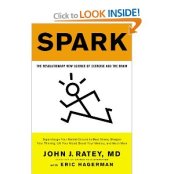
“The Gifts of Imperfection: Let Go of Who you Think You’re Supposed to Be and Embrace Who You Are.”
by Brene Brown
I’ve read a TON of Self-Help books. What makes this author different is that she is a RESEARCHER, not a self-help guru. She compiled all this information and data on how OTHER people live happy lives. And then she looked at her data and she was like.. “oh shit. I’m fucked up“. And throughout the book, she is learning how to apply the things she learned from her research to her own life. So overall, I feel like the book is really down-to-earth, because the author feels like an actual person instead of a Buddhist monk or something.
There is a lot of REALLY good information in the book. Here are some things I’ve been thinking about. This is by no means an accurate summary nor a reflection of the book.
What is the difference between Perfection and Healthy Striving?
Healthy striving is self-focused: “How can I improve?” Perfectionism is other focused: “What will they think?” Unhealthy Striving is about earning approval and acceptance from other people.
Honestly, most of my life I’ve been very other-focused. I’ve always worried about what family members, teachers and friends thought of my work. I’ve always sought out and listened to feedback and suggestions from other people to improve. And I’ve made some really great work. I won a lot of trophies, and had the approval and applause of a lot of peers. Recently, I’ve really tried to shield off what other people think of me. I disabled my facebook. I didn’t want to listen to other people’s suggestions. Going down that path didn’t really make anything better. It’s not about… “Not giving a shit about what other people think.” It IS about listening to yourself. And asking yourself what you think. And being aware of your inner dialogue and what your gut is telling you. I think that is something I need to work on. Something like that takes practice and time.
What do it mean to be authentic?
If you are in business, you know that it’s important for businesses to be authentic and gain the customer’s trust. If you ever been on a first date, all your friends you: “just be yourself.” Authenticity is the “daily practice of letting go who we think we are supposed to be, and embracing who we are.”
I’m here to tell you that being Authentic can be fucking hard. It can take a LOT of courage to truly be ourselves. If you are a girl, maybe you struggle with the idea that you have to be “feminine, thin, nice modest, small, quiet and attractive.” That’s what society want you to be, but maybe you are really a bold, aggressive and loud type of girl who likes to play with guns and arrows. If you are a guy, maybe you struggle with the idea that you have to be “emotionally controlled, successful with work, dominant over women, and have high status.” If you happen to be a sensitive caring guy who likes singing, dancing and sewing – man… are you gonna be fucked up. And no girl wants to date a pussy.
Do you see how much EASIER it is to just play it safe and be who you SHOULD be, rather than who you really are? When people say… “Just be yourself” – it sounds like an easy task, and I just want to say to everyone – HEY – IT’S HARD. It takes a lot of courage to be honest with yourself. You become very vulnerable. However, there are many rewards with practicing authenticity. The author says… “mindfully practicing authenticity during our most soul-searching struggles is how we invite grace, joy and gratitude into our lives.”
What is the difference between Happiness and Joy?
Happiness is a human emotion connected to circumstances. Your happiness can fluctuate depending on what’s going on in your life. Joy is spiritual way of engaging with the world that’s connected to practicing gratitude. Since I read the book, I’ve been keeping a gratitude journal where I write down what I’m grateful for. The purpose is to train my mind to become more accustomed to thinking grateful thoughts, so I can be more joyful. If you have a hard time being grateful when things ARE going your way, you are gonna be absolutely miserable when things AREN’T going your way. It takes practice to be grateful.
The opposite of faith is not doubt, but certainty. – Anne Lamott
If you have a need to be certain about everything, you are probably living a very precise and structured life – not be mention anxious and probably OCD. My friends and teachers have always told me… “Chris – you worry too much.” I’m always asking questions and have the desire to be sure of things. I probably got that from my mom. If your mom is always nagging, insecure and worrisome – you can probably relate to that as well.
“Faith is a place of mystery, where we find the courage to believe in what we cannot see and the strength to let go of our fear of uncertainty.”
Sometimes it’s okay to take a risk, be uncertain, and be vulnerable – that’s where faith comes in.
Why is Comparison bad for happiness?
I think the author describes this very aptly. She describes the world we live in as a crushing paradox of “fitting in” and “standing out”. We need to just like everyone else but better. Is that retarded or what? I remember when I was in art school, we were all encouraged to stand out. However, if you stood out too much, or you were too normal – you would get a bad grade. It’s like you had to stand out, but not too much to get that good grade. It used be all about what the professors thought. Now, I finally get to ask myself … what do I think?
Why is Play and Rest Important?
We live in a world where exhaustion is a status symbol and productivity is equated with self worth. Right? “Oh I worked 80 hours this week. I’ve had no sleep for 3 days straight. I drank 5 espressos today”. You would brag about it and compare with your classmates/ coworker to see who worked the hardest and got the most work done. That’s the world I lived in. At Art Center College of Design – there is a saying that you could tell how hard-working a student was by how many times he/she went to the Emergency Room that semester. That is FUCKED UP. Our society glorifies exhaustion as a status symbol. It’s unhealthy, it’s silly and it’s dangerous.
I have had a really hard being able to let go and relax. Mostly, I think it’s because I was conditioned to think it was bad or I didn’t deserve it. I was always taught… “Athletes are made in the off-season.” “Take no days off.” “Work Work Work.” Anyways, the author said that play and rest is important to living a whole-hearted life. I don’t think she scientifically explains why – but it sounds good enough to me. So I believe it. lol
Check out this post from the author of the book. A good read!
12 Tips on Letting Go of Perfectionism From Brene Brown
I’m gonna go rest now.









